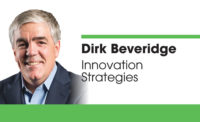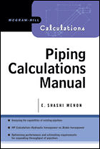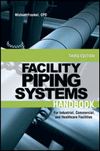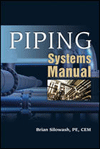Dirk Beveridge: The demise of distribution?

Distribution is dead.
OK, I don’t want to be hyperbolic. So, let’s try this: Distribution “as we know it and we’ve relied in the past doesn’t exist anymore.”
This quote comes from the mind of someone with a lot of authority on the matter: Graybar Chairman, President and CEO Kathy Mazzarella. It came up in a sobering conversation on my “Innovate for the Future” podcast about the forces reshaping the distribution industry and the industry’s slowness to adapt to them.
We are not talking about just another market shift. These forces are unlike anything we’ve seen before and they demand industry leaders rethink their organizations from top to bottom, inside and out.
This concept has changed the way I view the industry, and reinforced the sense of urgency that should drive innovation in the distribution industry. I believe so strongly in this concept, my team and I have written a new eBook detailing why distribution is dead and what you can do about it.
TRADITIONAL DISTRIBUTION MODELS ARE DISAPPEARING. WHAT WILL REPLACE THEM?
Deloitte characterized this shift to a new kind of distribution model in its report, “Wholesale distribution disrupted.”
“Traditional wholesale distribution is characterized by cautious, geographic expansion into contiguous markets, extension of product offerings into complementary categories and acquisitions centered on tuck-in strategies. But distributors are often less accustomed to seeing the emergence of new competitors leveraging completely new business models, rapid advances in and adoption of new technologies, or seismic shifts in how customers want to interact and transact.”
New competitors are arriving from outside the industry: eBay Business Supply is a $4-billion-plus B2B marketplace, and Amazon Business hit $10 billion in annualized sales in 2018 and is poised to reach $25 billion by 2021.
Meanwhile, traditional distribution is falling flat or in decline. Deloitte finds that the industry suffered an 8.3-point decline in operating capital from its peak in 2006. Year-over-year growth fell from the 16% rate achieved in 2006 to just 3% in more recent years.
The industry has been on a downward trajectory since 2011, and distribution has not regained margins since the recovery due to “the very real manifestation of multiple disruptions that are reshaping the industry,” McKinsey finds in its 2019 report “The coming shakeout in industrial distribution.”
Those disruptive forces mean that the things distributors do really well — their encyclopedic product knowledge, logistical prowess, localized inventory and carefully considered business relationships — are less meaningful today. Technology, shifting generational attitudes in the workforce and heightened customer expectations have drastically altered the market.
Think about when John Chambers, former CEO of Cisco, famously predicted in 2015 that disruption, across all industries, would be so brutal that 40% of business probably wouldn’t exist in 10 years. He updates this perspective in his new book:
“I got a lot of pushback for that. In retrospect, I think I was being too conservative.”
Distribution, as we once knew it, is dead. Distributors that don’t adapt to this reality will likely die along with it.
Long live the distributor that constantly evolves for a long-term future.
This is the kind of distributor I want each member of the UnleashWD tribe to be. This is a distributor that has created processes, cultural expectations and leadership that demands ongoing evolution.
HOW TO EMBRACE THE DISRUPTED FUTURE
In our eBook, we take a look at how the industry has shifted from the researchers and data scientists, but also from the distribution leaders who are grappling with these changes firsthand. You'll get a unique view into the minds of your peers and other distribution leaders.
We also shine a light on three distributors that are embracing change, so you can see how they instituted massive, holistic change piece-by-piece to compete in a digital world.
Transformation and innovation is not something that happens only in the billion-dollar, Fortune 500 companies. It’s happening across mid-market, family-run distributors as much as it does in massive conglomerates.
Finally, I offer you three super simple steps to get started, because at the end of the day, embracing change means committing to a mindset shift. It means rethinking processes that have basically become second nature to you.
It means changing the structure of your week to give yourself time to actually think — and prioritizing that sacred space. It means having new conversations with your customers (and I provide you with exactly the questions to ask) in order to gain fresh insight into your company from the people you serve.
Come with me on this journey. Once your eyes are opened to the possibilities, you’ll never look back.
Dirk’s eBook “Distribution As We Know It Is Dead...Here’s What to do About It” is available at distributionisdead.com.
Looking for a reprint of this article?
From high-res PDFs to custom plaques, order your copy today!








